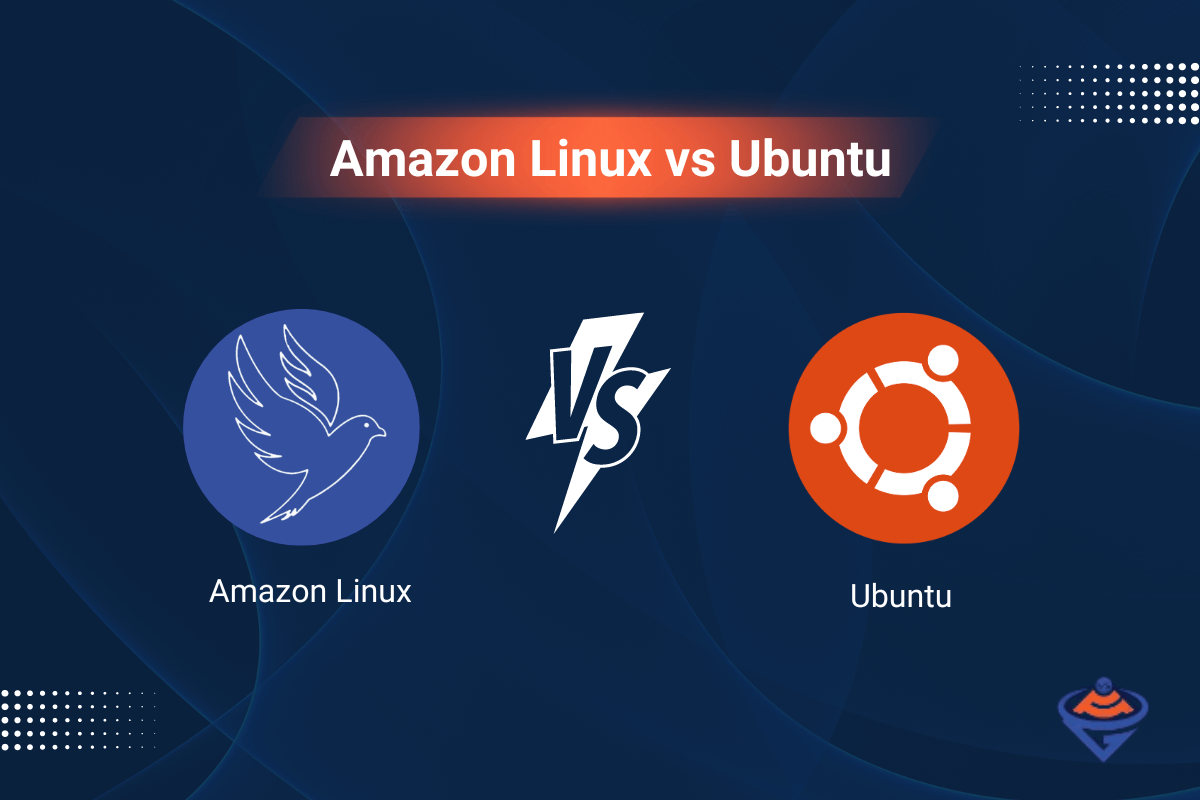What is Amazon Linux?
Amazon Linux is a Linux server operating system from Amazon Web Services (AWS). It is designed to provide a stable, secure, and high-performance execution environment for applications running on Amazon EC2. Amazon Linux is closely integrated with AWS features and services, optimized for cloud environments.
Table of Contents
- What is Amazon Linux?
- What is Ubuntu?
- Amazon Linux vs Ubuntu: Performance and Scalability
- Amazon Linux vs Ubuntu: Security and Compliance
- Amazon Linux vs Ubuntu: Community, Support, and Documentation
- Amazon Linux vs Ubuntu: Compatibility and Use Cases
- Conclusion
- FAQs
What is Ubuntu?
Ubuntu is an open-source Linux distribution based on Debian, widely used for servers, desktops, and cloud environments. Known for its ease of use and strong community support, it’s a popular choice for both beginners and experienced users.
Amazon Linux vs Ubuntu: Performance and Scalability
- Amazon Linux is optimized specifically for AWS infrastructure, ensuring excellent performance and scalability in cloud environments. It is tuned to efficiently handle AWS-specific workloads and integrate seamlessly with AWS tools and services.
- Ubuntu, while also efficient in cloud environments, is a more general-purpose OS. It offers robust performance and scalability, not just in AWS but across various cloud providers and on-premise environments.
Amazon Linux vs Ubuntu: Security and Compliance
- Amazon Linux comes with tight security integration with AWS services. It receives regular security updates and has a configuration that’s tailored to reduce exposure to vulnerabilities when running on AWS.
- Ubuntu has a strong focus on security as well, with frequent updates and a dedicated team for security patching. However, it’s a more general solution not specifically tailored to any single cloud provider’s infrastructure.
Amazon Linux vs Ubuntu: Community, Support, and Documentation
- Amazon Linux support is primarily provided through AWS Support, and documentation is focused on AWS integration and best practices. The community around Amazon Linux is more specialized, focusing on AWS users.
- Ubuntu has a vast and active community, extensive documentation, and professional support available through Canonical. This wide-ranging community support is beneficial for general Linux and cloud-related issues.
Amazon Linux vs Ubuntu: Compatibility and Use Cases
- Amazon Linux is ideal for businesses heavily invested in AWS infrastructure, offering optimized performance and seamless integration with AWS services. It’s less suited for multi-cloud or non-AWS environments.
- Ubuntu is highly versatile, suitable for desktops, servers, and cloud environments across various providers. It’s a better choice for multi-cloud strategies or if you seek a broader community and software compatibility.
|
Feature |
Amazon Linux | Ubuntu |
| Base system | Red Hat Enterprise Linux (RHEL)-based |
Debian-based |
|
LTS releases |
Yes | Yes (LTS versions) |
| AWS integration | Tightly integrated |
Requires additional configuration |
|
Software stack |
Optimized for servers | Wider range of pre-installed software |
| Community | Smaller, AWS-focused |
Larger, more diverse |
|
Cost |
Free on AWS |
Free to use, but may incur cloud provider fees |
Conclusion
Choosing between Amazon Linux and Ubuntu depends largely on your specific use case and environment. If you’re fully invested in AWS and seek a cloud-optimized solution with tight integration with AWS services, Amazon Linux is a compelling choice. However, if you require a more versatile OS that is suitable for a variety of environments and offers a broader community support network, Ubuntu is an excellent choice.
FAQs
Q. Is Amazon Linux free to use outside of AWS?
Amazon Linux is primarily designed for use within AWS and is not generally available for use outside of the AWS cloud.
Q. Can I run Ubuntu on AWS?
Yes, Ubuntu can be easily deployed on AWS, and it’s a popular choice for many AWS users due to its flexibility and strong community support.
Q. How does Amazon Linux handle updates and upgrades?
Amazon Linux provides a secure, stable, and high-performance environment with continuous updates and security patches managed by AWS.
Q. Is Ubuntu suitable for enterprise environments?
Absolutely, Ubuntu is widely used in enterprise environments due to its stability, security, and scalability across various deployments, including cloud and on-premise.
Q. Can I get professional support for both Amazon Linux and Ubuntu?
Yes, professional support for Amazon Linux is available through AWS support plans, while Ubuntu offers professional support services through Canonical.

